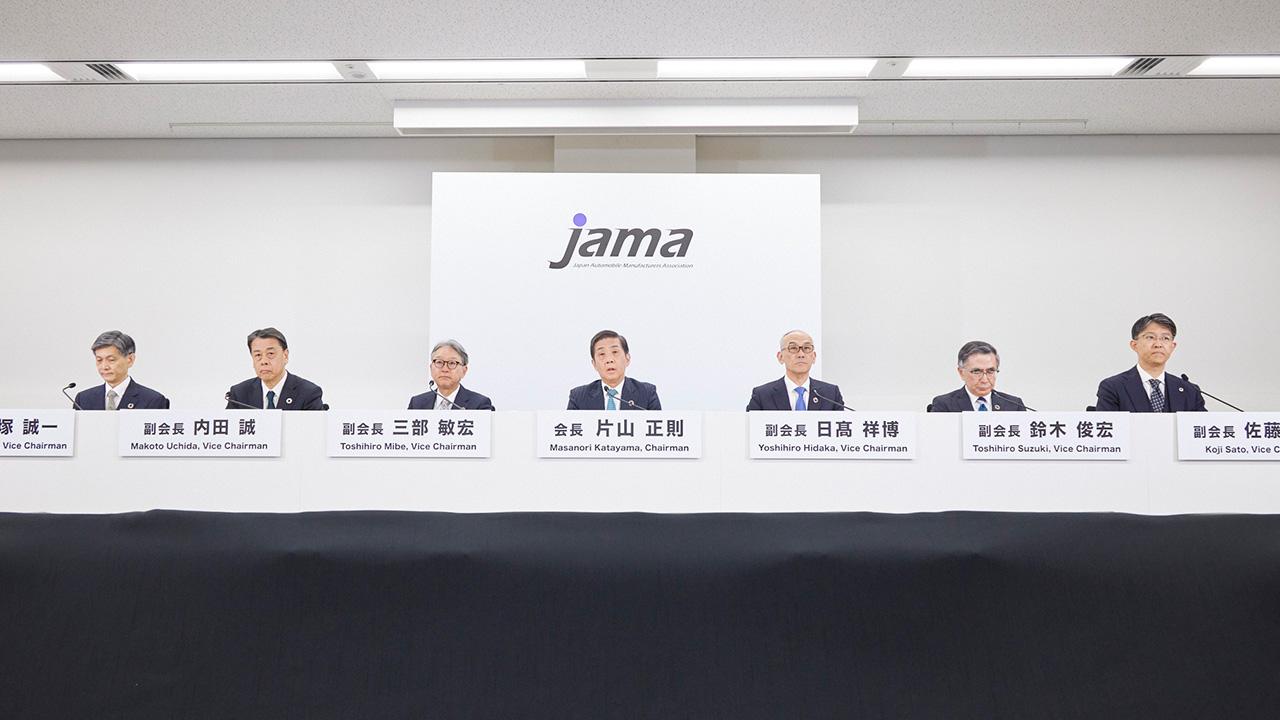
JAMA's chairman and vice chairmen have taken responsibility for tackling seven challenges confronting the auto industry. At a recent press conference, they spoke about their industry-spanning initiatives.
Vice chairmen’s priority areas
2. Infrastructure development for the proliferation of electric vehicles
Vice Chairman Makoto Uchida (Nissan)
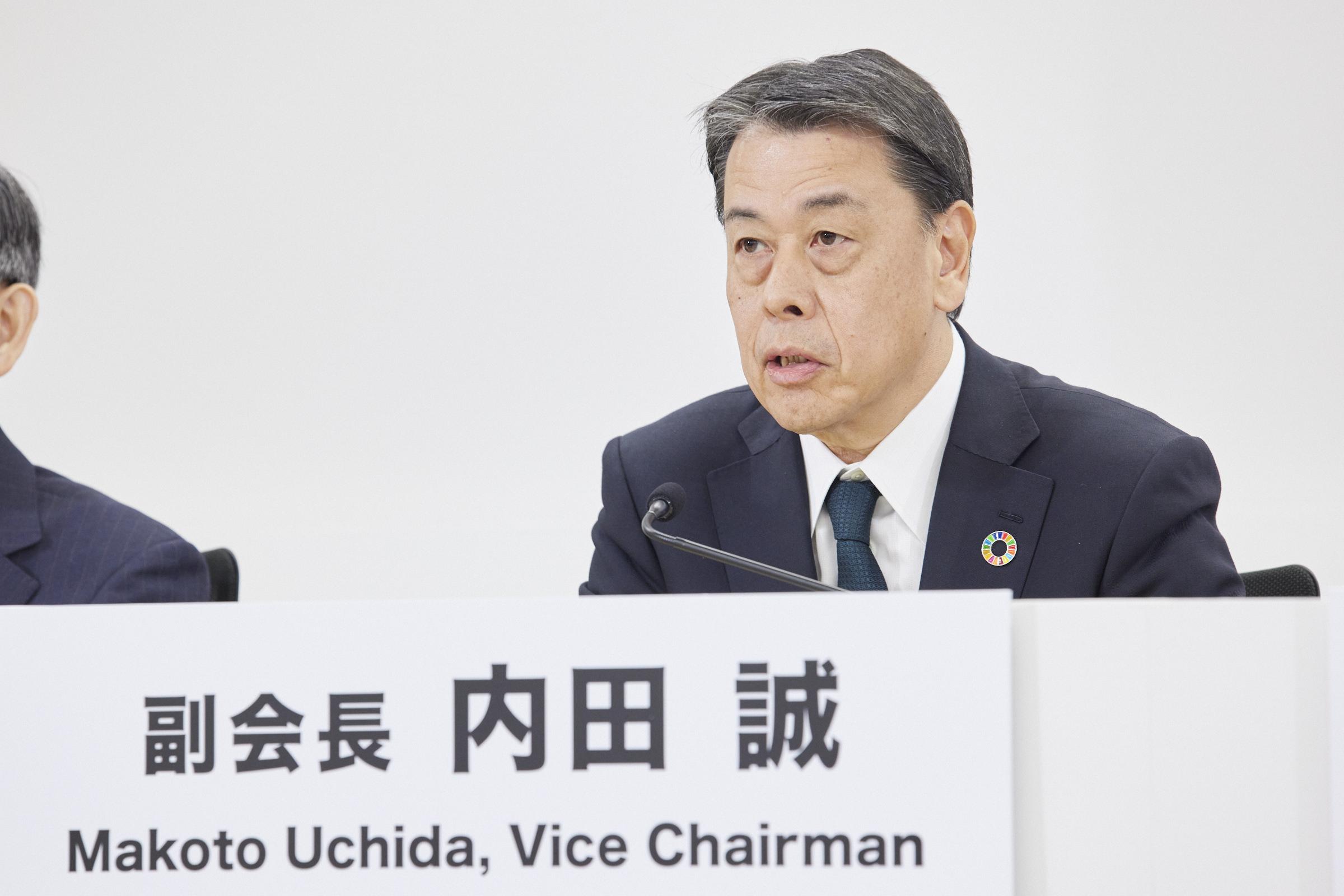
The environment in which the auto industry operates is rapidly undergoing major changes. New challenges and competitors are constantly emerging, and in many cases, these cannot be dealt with by continuing to do things as we have in the past.
In this respect, as Chairman Katayama has mentioned, the key lies in the JAMA leadership working together to expand areas of collaboration while protecting the competitive domains of individual companies, harnessing our competitiveness and Japan’s strengths.
Within this context, I will be working to address the second of our seven issues, which is about building the infrastructure to encourage widespread adoption of electric vehicles.
Given that Japan’s rate of electrification is still low, I want to work with the government and engage related companies on how we can boost (EV) uptake in the country moving forward.
When it comes to finding ways of bringing out Japan’s competitive strengths, I see many potential areas of cooperation. As JAMA, I hope to set the direction through discussions with the chairman and other vice chairmen.
3.International competitiveness of domestic batteries and semiconductors
Vice Chairman Toshihiro Mibe (Honda)
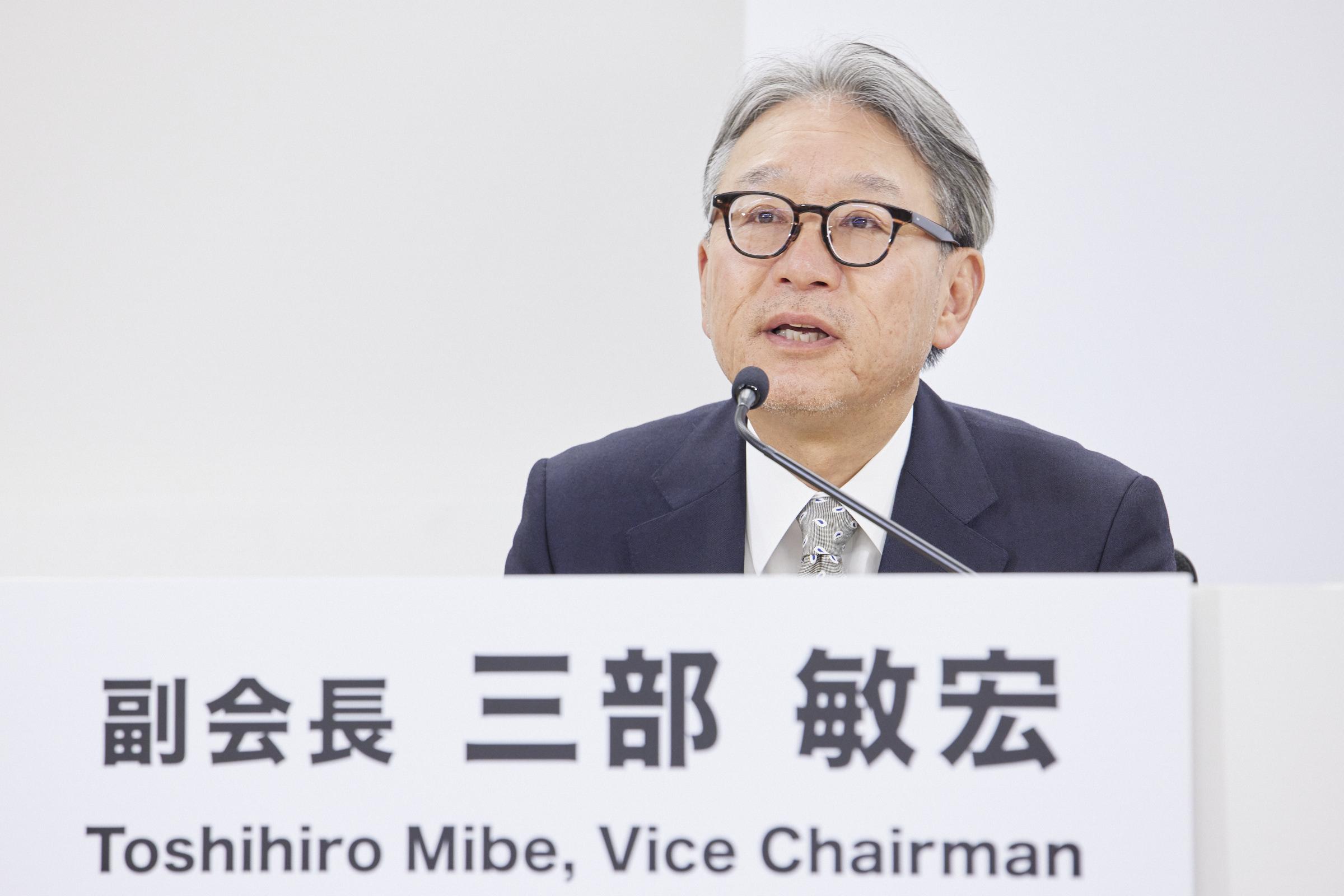
Of the seven issues, I will be working in the area of semiconductors.
In recent years, chip shortages have caused problems for automotive manufacturers. Among these, legacy * as well as analog chips, which are the core semiconductors for automobiles, will see demand expand even further in coming years. I will work to address this effectively, with the aim of ensuring stable supplies.
*Semiconductors made with older-generation processes, mainly used in automobiles, energy development, and infrastructure-related (B-to-B) sectors.
Since JAMA cannot achieve this on its own, we want to explore joint public-private projects with the extensive cooperation of tier one suppliers, trading firms, and semiconductor manufacturers.
4.Stable procurement of critical resources – resilient supply chains
5.Trade policy to promote domestic investment
Vice Chairman Koji Sato (Toyota)
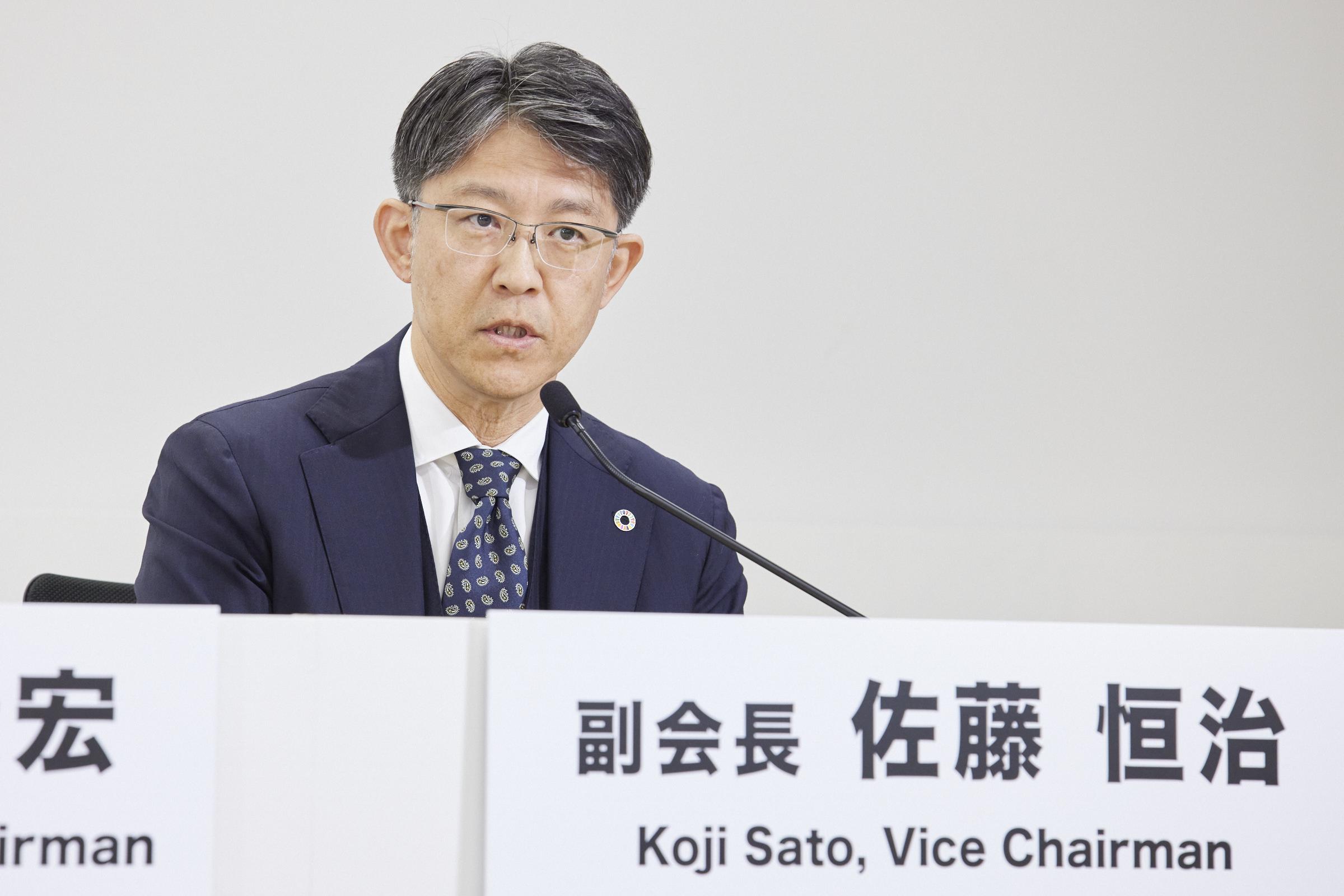
I feel that we are seeing very vibrant discussions around these seven issues.
There is a great deal of collaboration among the vice chairmen and across different topics, which I feel is showing a certain level of progress.
Of the seven issues, I am working on the stable procurement of critical resources and trade policies to effectively use domestic investment.
At last year’s G7 (Group of Seven summit), we presented our uniquely Japanese multi-pathway approach to carbon neutrality. Upon this foundation, one of the means to achieve this goal is (establishing) a vast ecosystem to aid the widespread adoption of battery EVs (electric vehicles), from materials procurement to the secondary use and recycling of batteries. We believe it is crucial that we properly map out these large-scale cycles and explore the various challenges involved.
Particularly when it comes to procuring critical resources, it’s crucial that we also secure stable supply routes for semiconductors. Working with Vice Chairman Mibe, I want to tackle this as a JAMA-wide effort, and to translate cross-industry collaboration into concrete initiatives.
6.Competitive green energy
Vice Chairman Toshihiro Suzuki (Suzuki)
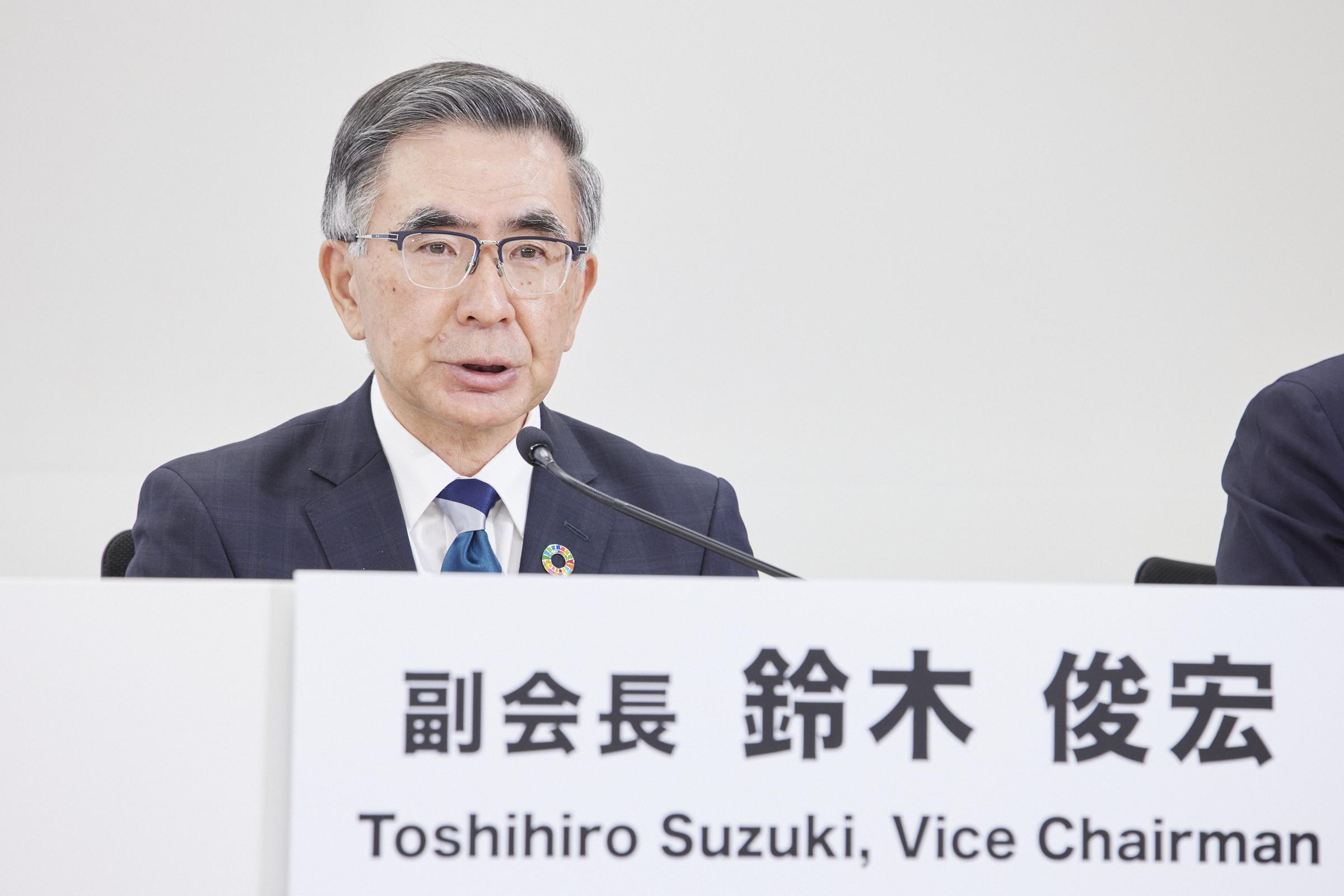
With the vice chairmen and board members firmly behind Chairman Katayama, I want to ensure that we can all work proactively toward solving the auto industry’s issues.
We will make sure JAMA speaks with one voice, sharing accurate information founded in solid principles. At the same time, we will strive to contribute to Japan’s development by engaging other industries in our efforts.
In focusing on the issue of competitive green energy, I will aim to speed up the rollout of carbon-neutral fuels.
This is one of the diverse options that forms JAMA’s multi-pathway approach. However, numerous hurdles stand in the way of commercialization and widespread adoption.
I want to solve each of these problems by engaging not only the auto industry but also the oil industry and other sectors, Keidanren, and the government. I think it’s important to start by taking action.
6 & 7. Foundation for cross-industry data collaboration and component traceability
Vice Chairman Yoshihiro Hidaka (Yamaha)
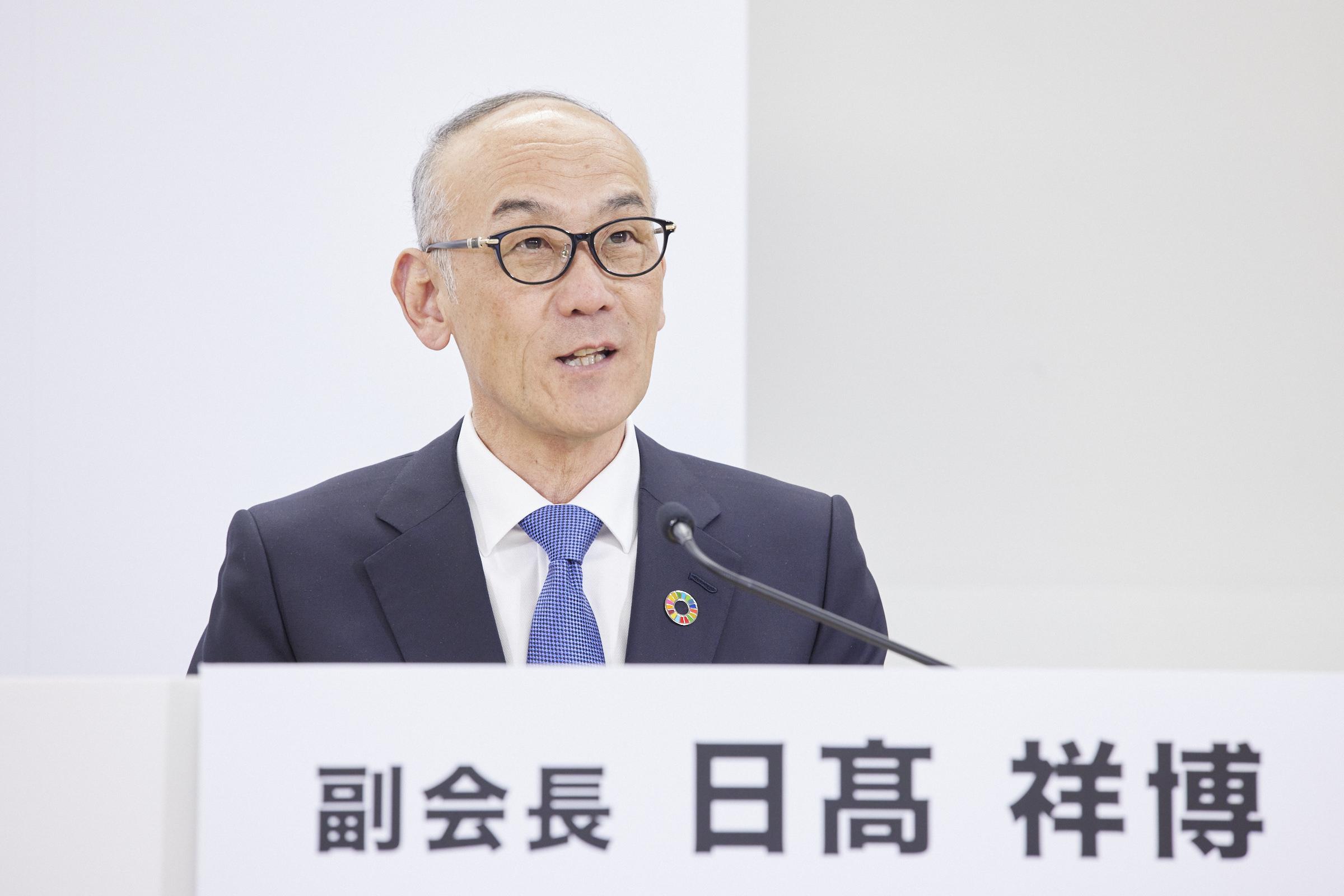
Of the seven issues, I will focus on number six, competitive green energy, and number seven, building the foundations for cross-industry data collaboration and component traceability * .
*Enabling product materials to be traced from procurement to production, consumption, and disposal.
For issue six, I will work with Vice Chairman Suzuki to give shape to the multi-pathway vision by establishing an environment where various forms of green energy can be harnessed competitively.
Meanwhile, issue seven is concerned with IT infrastructure. Firstly, to strictly comply with incoming European battery regulations, we want to implement battery traceability using the Ouranos ** IT system while also expanding the scope of data collaboration among companies in Keidanren’s Committee on Mobility, with the aim of turning the Mobility Smart Passport concept *** into reality.
**Ouranos Ecosystem. A METI-led initiative to build a Japanese ecosystem for cross-border data sharing and system collaboration, spanning across companies and industries, for the purpose of solving social issues.
***Building on the integration of My Number Cards with driver’s licenses, this concept seeks to create a data-linkage system that connects the IDs of people and vehicles, enabling the consolidation and utilization of various forms of data.
In any event, as we address these seven issues, I want to work closely with the chairman and my fellow vice chairmen to energize Japan’s auto industry.
JAMA Vice Chairman Seiichi Nagatsuka also emphasized the importance of a concerted team effort in overcoming these difficulties.
Vice Chairman Nagatsuka
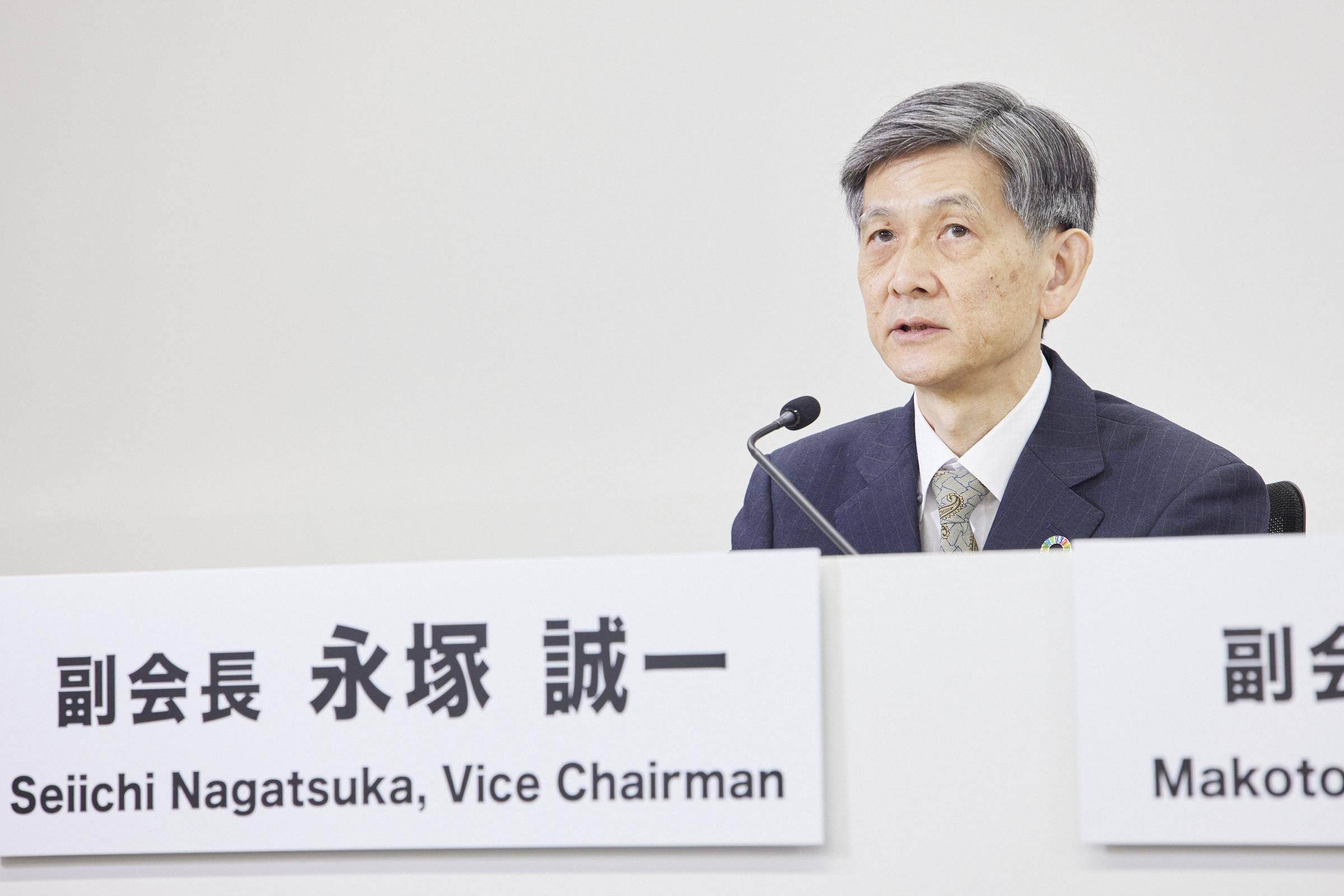
The environment surrounding the auto industry is undergoing tremendous change, presenting a range of mounting challenges. To remain a core industry sustaining Japan’s economy and society, the JAMA team will collaborate with other sectors and work as one to tackle these seven issues and other challenges head-on.
As the person overseeing the secretariat, I will ensure that the framework established through the reforms of former Chairman Toyoda will continue to firmly underpin Chairman Katayama's efforts. Together with the other vice chairmen and the board, we will navigate our way through this difficult situation.

